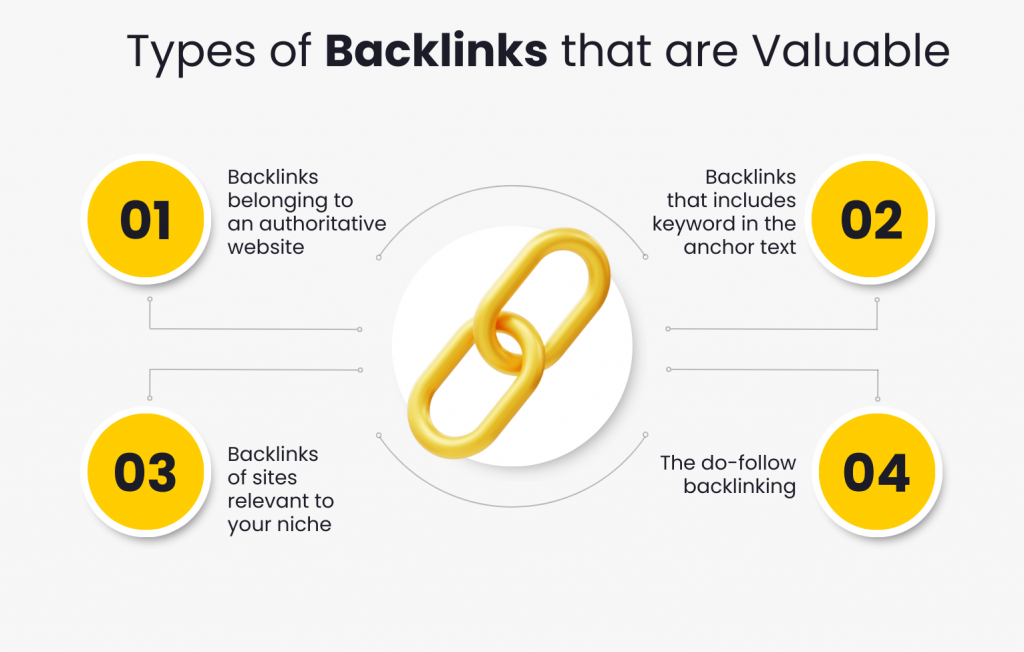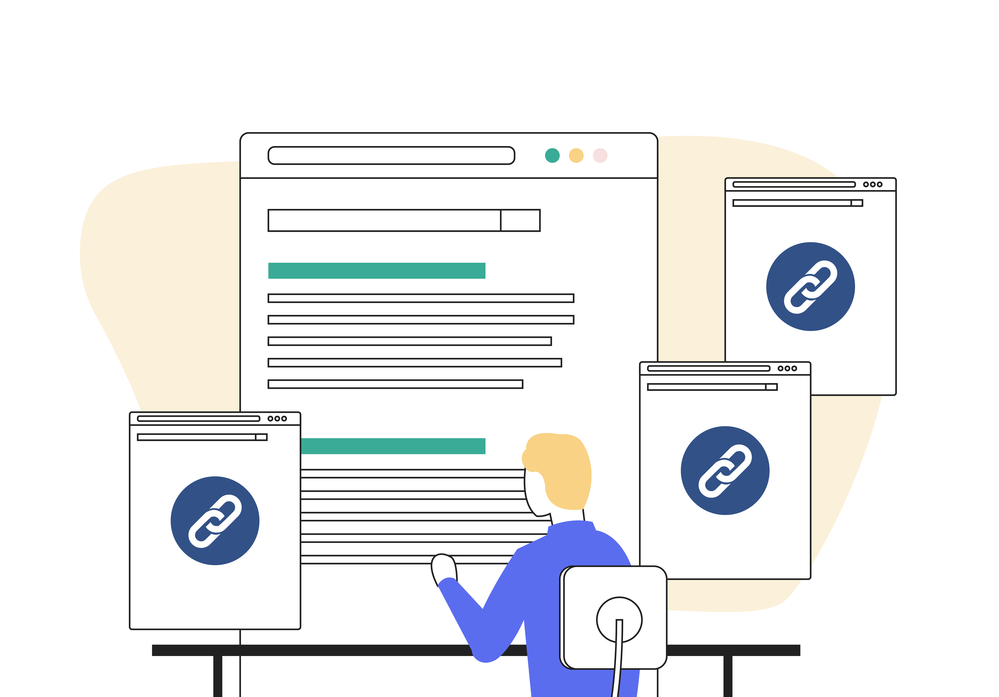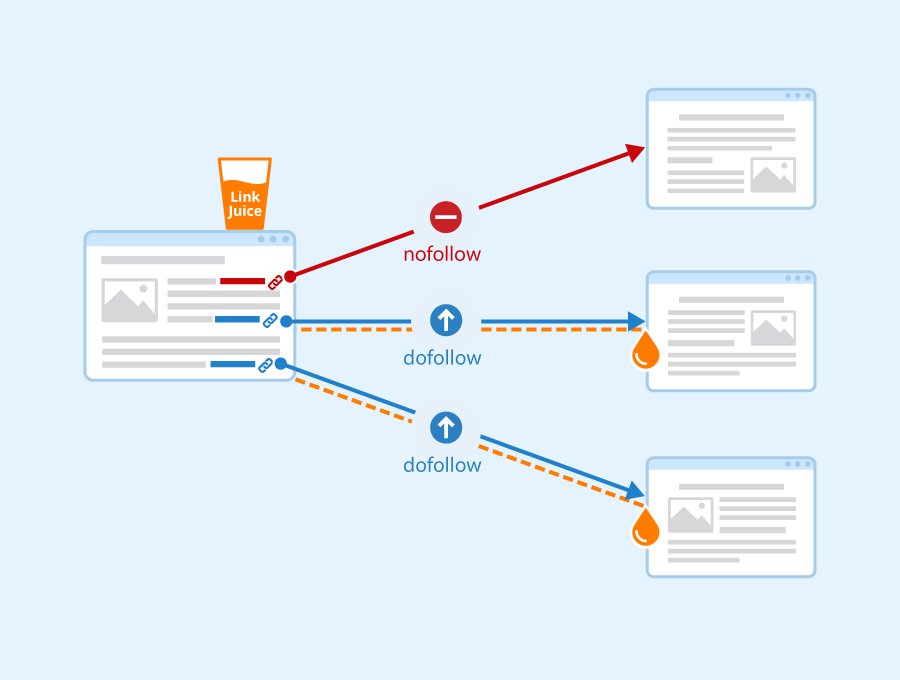What is Link Juice?
In SEO (Search Engine Optimization), “link juice” refers to the value or authority passed from one web page to another through hyperlinks. When a webpage links to another webpage, it essentially passes some of its authority or credibility to the linked page. This concept is commonly associated with the Google PageRank algorithm, which evaluates the importance of web pages based on the quantity and quality of links pointing to them.
Link juice is distributed among the outbound links on a webpage, meaning that the more links there are on a page, the smaller the share of link juice each individual link will receive. It’s important to note that not all links carry the same amount of link juice. High-quality and authoritative websites that link to your page are more likely to pass significant link juice compared to low-quality or irrelevant websites.

How it impacts on SEO?
When a webpage receives link juice from reputable sources, it can benefit in several ways. It may experience an improvement in search engine rankings, as search engines consider inbound links as indicators of a page’s relevance and authority. Additionally, link juice can enhance the visibility and organic traffic of a webpage by increasing its chances of being indexed and ranked by search engines.
To maximize the link juice passed to your webpages, it’s important to focus on building high-quality backlinks from authoritative and relevant websites. Creating valuable content, implementing effective link-building strategies, and fostering relationships with other reputable websites can all contribute to earning valuable link juice and boosting your SEO efforts.
The concept of PageRank and its relationship with link juice.
The concept of PageRank, developed by Larry Page and Sergey Brin at Stanford University, played a significant role in the early days of Google’s search algorithm. While PageRank is no longer the sole factor determining search rankings, it still holds relevance and has a relationship with link juice.
PageRank is essentially a system that assigns a numerical value (ranging from 0 to 10) to webpages, representing their authority and importance. The underlying principle of PageRank is that a webpage’s importance is determined by the quantity and quality of links pointing to it. Each link from another webpage acts as a vote of confidence or endorsement for the linked page.
In the context of link juice, PageRank can be seen as a measure of the link juice a webpage possesses or passes to other linked pages. A webpage with a higher PageRank has more authority and, consequently, more link juice to distribute. When such a webpage links to another page, it passes a higher amount of link juice, which can positively impact the linked page’s search engine rankings.
However, it’s important to note that the relationship between PageRank and link juice is not linear or straightforward. PageRank is only one aspect of Google’s complex ranking algorithm, and the distribution of link juice depends on various factors. Google considers the relevance, context, and quality of the linking site, among other factors, in determining the impact of link juice on search rankings.
While PageRank is no longer publicly visible in Google’s toolbar or search results, it continues to influence the behind-the-scenes calculations of link authority and link juice distribution. Other metrics and algorithms have evolved to supplement the evaluation of link quality and website authority.
In summary, PageRank and link juice share a relationship in the sense that PageRank is a measure of a webpage’s authority, which influences the amount of link juice it possesses and can pass to other linked pages. Understanding this relationship helps in developing effective link-building strategies and prioritizing high-quality backlinks from authoritative sources to enhance the link juice and overall SEO performance of a website.

Importance of authoritative and relevant backlinks for link juice distribution.
The importance of authoritative and relevant backlinks for link juice distribution cannot be overstated. When it comes to optimizing link juice and maximizing its impact on SEO, the quality and relevance of backlinks play a crucial role. Here are several reasons why authoritative and relevant backlinks are significant:
- Enhanced Credibility and Trust: Backlinks from authoritative websites signal to search engines that your website is trusted and reputable. When high-quality websites link to your content, it boosts your website’s credibility and establishes trustworthiness in the eyes of both search engines and users.
- Increased Link Juice Transfer: Authoritative websites generally have higher domain authority, which means they possess a larger share of link juice. When such websites link to your content, they pass a substantial amount of link juice to your pages, potentially improving your own website’s authority and search engine rankings.
- Contextual Relevance: Relevant backlinks from websites within your industry or niche provide context and help search engines understand the subject matter of your website. When search engines recognize that reputable websites within your niche are linking to your content, it reinforces the relevance and importance of your website within that specific topic.
- Targeted Traffic Generation: Backlinks from relevant sources can drive targeted traffic to your website. When users encounter a link to your content on a website they already trust or visit regularly, they are more likely to click on the link and visit your website. This targeted traffic has a higher chance of conversion, leading to improved engagement metrics and potential business opportunities.
- Improved Indexing and Crawling: Authoritative backlinks can also help with search engine indexing and crawling. When search engine bots encounter a link from a reputable website to your content, it signals that your website is worthy of being indexed and crawled. This can lead to faster and more thorough indexing of your pages, increasing their visibility in search engine results.
- Long-Term SEO Benefits: Building a strong portfolio of authoritative and relevant backlinks can have a lasting impact on your website’s SEO performance. As search engines continually update their algorithms, having a robust foundation of quality backlinks helps maintain and improve your rankings over time.
To acquire authoritative and relevant backlinks, it’s essential to focus on content quality, outreach efforts, and relationship-building within your industry. Producing valuable and shareable content naturally attracts links from authoritative sources. Engaging in guest blogging, influencer collaborations, and building connections with industry influencers and bloggers can open doors to obtaining high-quality backlinks.
Remember, the key is to prioritize quality over quantity when it comes to backlinks. A few authoritative and relevant backlinks can have a more significant impact on your link juice and SEO performance compared to numerous low-quality or irrelevant backlinks.

Factors affecting the flow and distribution of link juice.
The flow and distribution of link juice are influenced by several factors that determine how effectively it passes from one webpage to another. Understanding these factors is crucial for optimizing link juice and maximizing its impact on SEO. Here are key factors that affect the flow and distribution of link juice:
- Source Page Authority: The authority of the webpage that contains the outbound link plays a significant role in determining the amount of link juice passed. A webpage with higher authority, often measured by metrics like domain authority or PageRank, tends to have more link juice to distribute. Links from pages with higher authority carry more weight and can transfer a larger amount of link juice.
- Number of Outbound Links: The number of outbound links on a source webpage affects how link juice is distributed. If a page has multiple outbound links, the link juice is divided among them. Consequently, the more links on a page, the smaller the share of link juice each individual link receives. Pages with fewer outbound links have a higher potential to pass more link juice to each linked page.
- Relevance and Context: Relevance and contextual alignment between the source webpage and the linked page are important factors in link juice distribution. When a backlink comes from a page that is topically relevant to the linked page, it enhances the effectiveness of link juice transfer. Search engines consider relevant links as stronger signals of content quality and authority.
- Link Placement: The placement of the link within the source webpage can impact the flow of link juice. Generally, links placed higher up on a page, such as in the main content area or within contextual references, tend to carry more link juice than links placed in the footer or sidebar. Links placed within the body of the content are often given more weight in terms of link juice transfer.
- Nofollow vs. Dofollow: Nofollow links, indicated by the rel=”nofollow” attribute, do not pass link juice from the source webpage to the linked page. While they can still generate traffic and visibility, nofollow links are not counted as direct signals for SEO ranking purposes. Dofollow links, on the other hand, pass link juice and contribute to the SEO impact of the linked page.
- Anchor Text: The anchor text used for the link can influence how link juice is distributed. When the anchor text is relevant and descriptive, it provides additional context to search engines about the content of the linked page. Well-optimized anchor text can help search engines understand the relevance and importance of the linked page, contributing to the effective distribution of link juice.
- Trustworthiness of the Linked Page: The trustworthiness and quality of the linked page can impact how search engines evaluate and distribute link juice. If the linked page is deemed low-quality, spammy, or irrelevant, search engines may discount the link juice passed from it. Therefore, it’s essential to ensure that the linked page maintains high-quality standards and aligns with search engine guidelines.
By considering these factors, website owners and SEO practitioners can optimize the flow and distribution of link juice. Prioritizing authoritative sources, relevant linking contexts, proper link placement, and quality optimization techniques can maximize the SEO benefits derived from link juice and contribute to improved search engine rankings.

Clarification of the difference between dofollow and nofollow links in terms of link juice.
Dofollow and nofollow are HTML attributes that can be added to links to indicate to search engines how to treat those links in terms of passing link juice. The main difference between dofollow and nofollow links lies in their impact on link juice distribution:
- Dofollow Links: Dofollow links are regular hyperlinks that do not contain the rel=”nofollow” attribute. These links are designed to pass link juice from the source webpage to the linked page, contributing to the recipient page’s authority, relevance, and search engine rankings. Dofollow links are considered endorsements or votes of confidence, indicating that the linking website vouches for the quality and credibility of the linked content.
- Nofollow Links: Nofollow links, on the other hand, contain the rel=”nofollow” attribute within their HTML code. This attribute instructs search engine crawlers not to follow the link or pass any link juice to the linked page. Nofollow links were introduced as a measure to combat spam and prevent the misuse of link-building practices. They are often used for links that are user-generated, paid advertisements, or any other links that website owners don’t want to be associated with their endorsement.
It’s important to note that while nofollow links don’t directly contribute to link juice distribution or impact search engine rankings, they still serve other purposes:
- User Traffic: Nofollow links can generate referral traffic, attracting users who click on the link and visit the linked page. This traffic can still be valuable for website exposure and potential conversions.
- Crawlability: Search engine crawlers still follow nofollow links; they just don’t pass link juice. Crawling nofollow links can help search engines discover and index content on the linked page.
- Natural Link Profile: A healthy backlink profile typically includes a mix of both dofollow and nofollow links. Having a diverse and natural link profile, including nofollow links from reputable sources, can be seen as a sign of organic link acquisition.
While dofollow links are more directly influential in terms of link juice distribution and SEO impact, it’s important to maintain a balanced link profile that includes both types of links. This helps create a natural link profile and ensures compliance with search engine guidelines regarding the appropriate use of nofollow attributes.
Conclusion
Link juice is a vital component of SEO and plays a significant role in determining Google rankings. It refers to the authority and value passed from one webpage to another through backlinks. The more authoritative and relevant the backlinks, the more link juice is transferred, improving a webpage’s visibility and authority. Link juice helps search engines evaluate the importance and relevance of a webpage, impacting its rankings in search results. Acquiring high-quality backlinks and optimizing link juice distribution can significantly enhance a website’s SEO performance, driving organic traffic, improving credibility, and increasing the chances of ranking higher in Google’s search results.


Leave a Reply